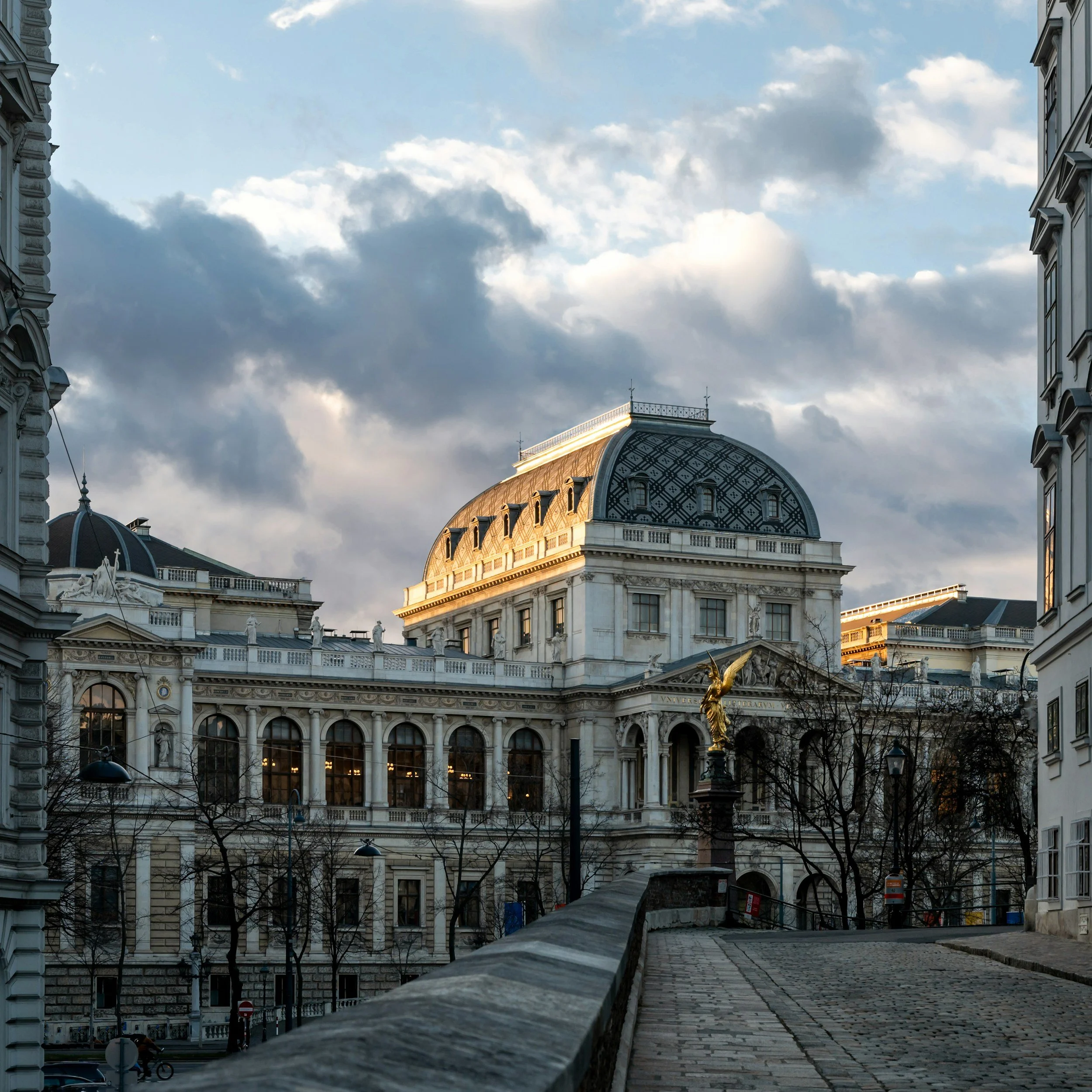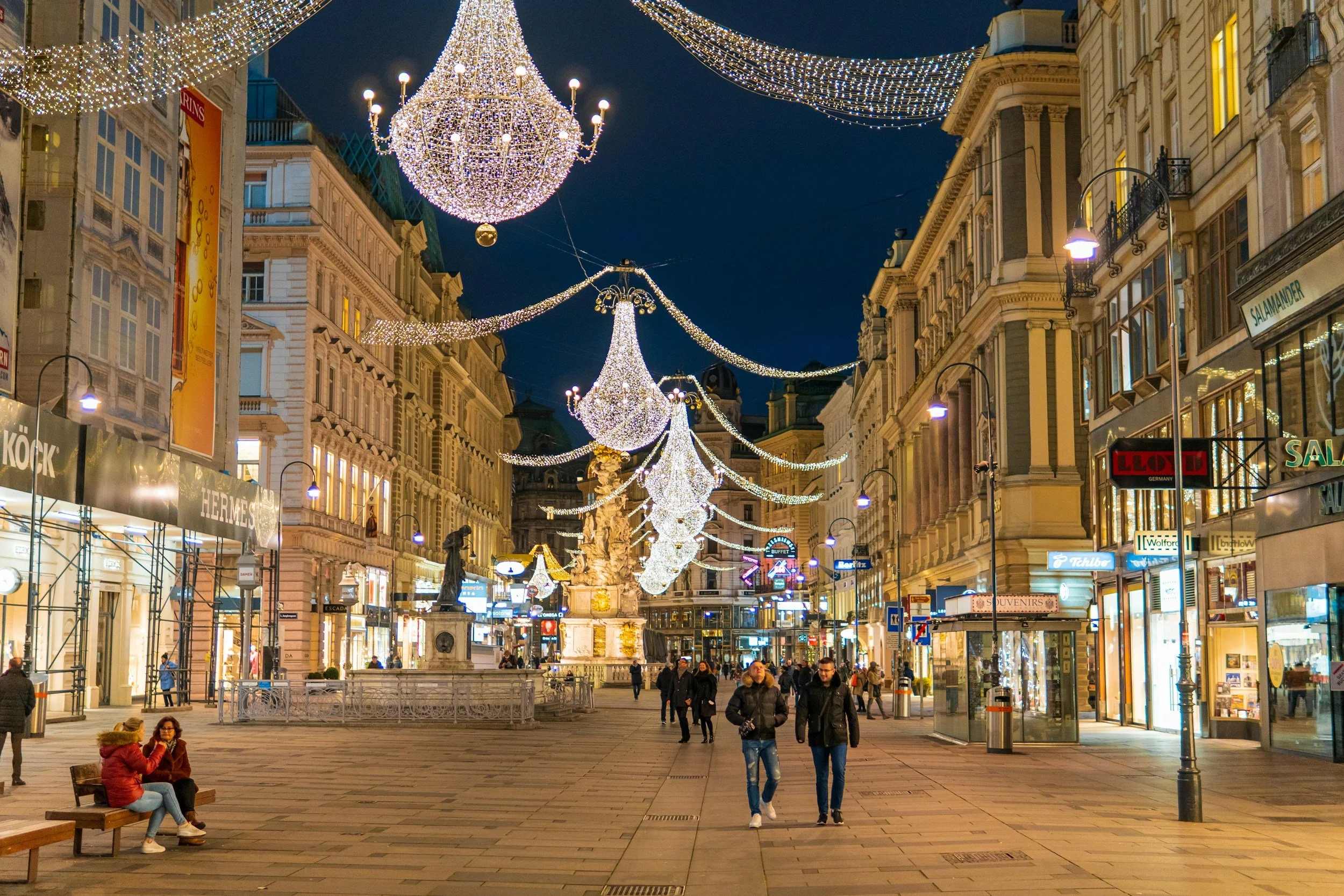What Should We Learn If Everything Changes?
I have returned from Vienna, otherwise known as the only place on Earth that matters starting mid-November through January. My itinerary was rigorous: ingest dangerous amounts of cocoa, layer wool until I resembled a sentient ball of yarn, and professionally saunter around Christmas markets (see my last year’s article on Christmas markets here).
Look, I hate to break it to the rest of the globe, but it’s not your fault Vienna does the holidays better than you. It’s just a fact. You tried, you failed, Vienna won.
I had a marvelous time.
But now that I’ve alienated 99% of the planet, let’s pivot. On my final morning, during a brisk 8 am stroll past my old alma mater, the University of Vienna, I was confronted by a poster: “Was sollen wir lernen, wenn sich alles ändert?”
To me, everything sounds more urgent in German. What should we learn if everything changes? In English, it’s a philosophical question that you ponder over tea and scones. However in German, it sounds like a threat. It’s screaming that the world is on fire and we’d better start taking notes. We’re mid-apocalypse, the bunker is leaking, and we need a curriculum immediately.
So, naturally, being a card-carrying Type A, I couldn’t just admire the font and keep walking. I immediately treated the poster like a pop quiz I hadn’t studied for and started drafting answers on my phone before I’d even reached the next crosswalk.
It helps that I’m currently deep in the trenches of a Cognitive Psychology module for my Master’s. For the uninitiated, think of Cognitive Psychology as the indie, low-fi precursor to neuroscience. It’s basically the study of the brain’s source code, but before we had the fancy scanners to take screenshots of it. The focus is on perception, memory and language.
So standing there, freezing my nose off in the First District, I realized that if the world is indeed shifting beneath our feet, understanding the biological machinery inside our heads is probably step one. So, purely to soothe my own existential anxiety (and perhaps yours) here are the five pillars of my impromptu End-of-Days curriculum.
1. The User Manual (Psychology) If the external world is volatile, the internal world is the only constant we have left. And it, too, is chaos, but understanding psychology can help us navigate it. As my module is reminding me, humans are glitchy, biased, unreliable narrators of their own lives. Learning psychology isn't just about reading Freud and nodding thoughtfully; it’s about understanding why we panic, how we form tribes, and why our brains prefer comfortable lies over uncomfortable truths.
2. Advanced ‘Question Everything’ Mentality In an age where algorithms feed us exactly what we want to hear, the most valuable skill is no longer finding information. It’s filtering it. We need to major in Skepticism with a minor in Checking the Source. If you can’t look at a headline, a deep-fake video, or a politician’s promise and immediately ask, “Okay, but who is paying for this?” you are going to have a very bad time in the apocalypse.
3. The Art of Unlearning and Relearning We spend the first quarter of our lives accumulating facts, but if "everything changes" as the poster threatens, then holding onto outdated data is a liability. The ability to look at a belief you’ve held for decade and say, “Well, turns out I was completely wrong about that,” is a superpower. It hurts the ego, sure, but it beats being the dinosaur staring at the meteor insisting it’s just a really bright star.
4. Deep Focus (The Anti-Scroll) Our attention spans have been shattered into 15-second fragments set to trending audio. Relearning the ability to sit with a single, complex problem for more than three minutes without reaching for dopamine is going to be the difference between the people who build the future and the people who just watch it happen on Instagram.
5. Analog Connection Finally, we need to relearn how to be human in 3D. Vienna reminded me of that. You can order cocoa on an app, but you can’t replicate the specific, chaotic joy of huddling under a heat lamp with friends and strangers. When the digital world gets too loud or too fake, the ability to build real community - that is, to look someone in the eye and have a conversation that isn't mediated by a screen - is what keeps us sane.
So there you have it. That is my syllabus. I’m sure the University of Vienna will be contacting me shortly to offer me a tenure track position based on this post alone. (I do happen to have a PhD from them, but it’s been a while).
On the walk back to the hotel, I passed my old dorm. I looked up and had to smile. The current resident of my old room has committed to a polka-dot wallpaper aesthetic. Respect. The lights were blazing, illuminating a precarious tower of books. Exam season. I know that specific brand of panic well.
"We’re going to be okay … you, me, and the polka dots," I whispered to the window. "There’s still plenty left to learn."
What do you think we should learn to stay relevant?
You can search for all destinations currently featured on mucho mundo here and consult the blog articles here.





